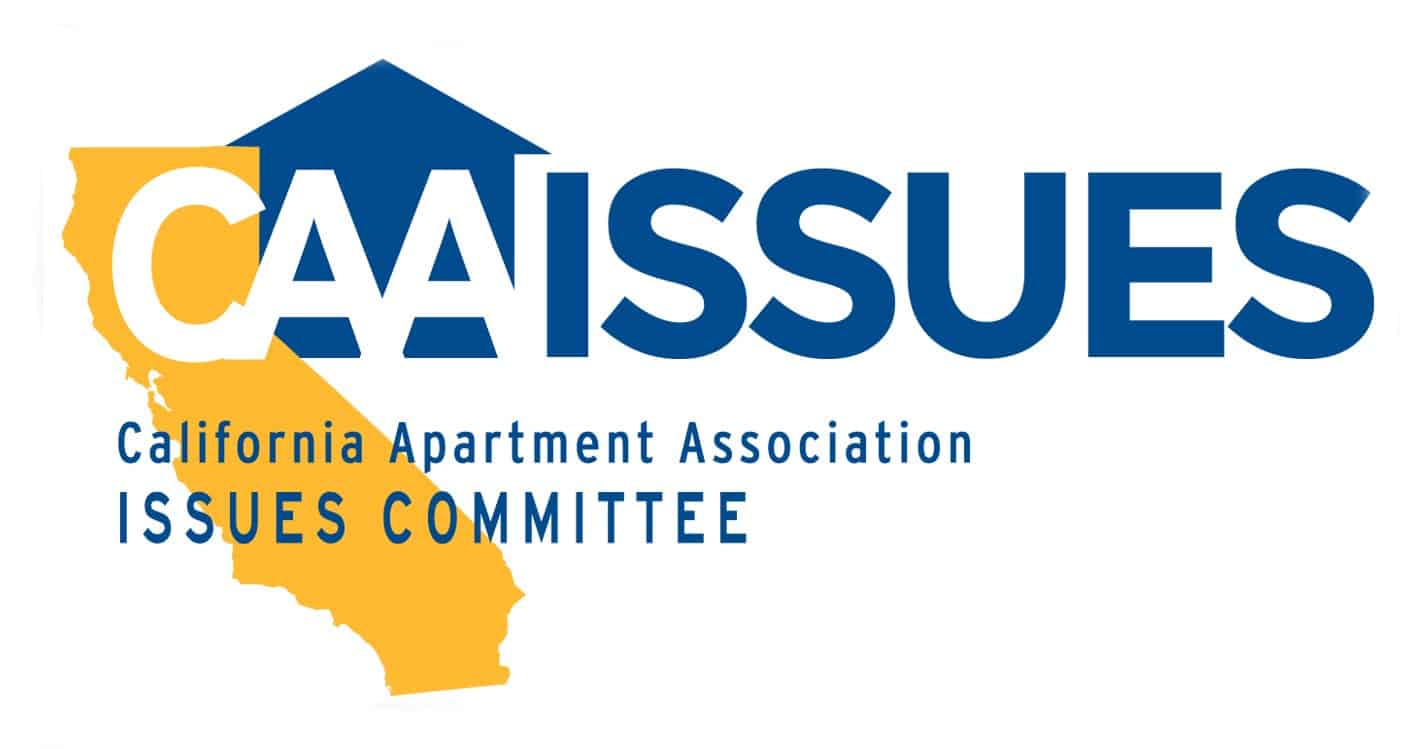The California Apartment Association has negotiated a less-burdensome alternative to Assemblyman David Chiu’s AB 1436.
The new bill is AB 3088, dubbed the COVID-19 Tenant Relief Act of 2020, and will be in print this afternoon.
Over the past week, CAA engaged in around-the-clock negotiations with the governor’s office and leaders in the Senate and Assembly on the new legislation.
The new proposal would allow landlords to evict tenants who cause problems at the property, such as by causing nuisances or threatening their neighbors. It also would allow owners to terminate the tenancies of renters who have the wherewithal to pay rent but refuse to do so. The bill would offer eviction protections to tenants with legitimate financial hardships due to COVID-19. Starting with September’s rent, however, those tenants with COVID hardships would have to pay at least a portion of their rent to maintain eviction protections. Failure to do so by Jan. 31 would result in the landlord being permitted to proceed with an eviction case on or after Feb. 1, 2021.
“We applaud the Legislature and governor for advancing legislation with protections for tenants truly harmed by COVID, while ensuring that owners can evict nuisance tenants and residents who can afford to pay rent but choose to game the system instead,” said Tom Bannon, chief executive officer of the California Apartment Association. “We will continue to work on proposals to help housing providers recoup lost rent in the near term. More must be done to help our mom-and-pop landlords.”
The new proposal replaces AB 1436, a bill adamantly opposed by CAA that would have encouraged tenants — including those without financial hardships from COVID-19 — to skip rent payments without fear of eviction. Additionally, AB 1436 proposed to let tenants skip rent payments without providing any paperwork, let alone proof, that they have been negatively affected by COVID-19, making the bill tantamount to a government-sanctioned rent strike. Furthermore, AB 1436 would have granted tenants the legal right to withhold their unpaid rent until April 1, 2022.
Although imperfect, the COVID-19 Tenant Relief Act of 2020 marks a vast improvement over AB 1436.
The legislation follows many hours of intense negotiations. The primary authors include Sen. Anna Caballero, D-Salinas; Sen. Steven Bradford, D-Gardena; Assemblywoman Monique Limón, D-Santa Barbara; and Chiu, the San Francisco Democrat behind AB 1436.
If ultimately passed by a two-thirds majority in the Legislature and signed by the governor, the legislation will have an effective date of Tuesday, Sept. 1. This coincides with the California courts resuming the processing unlawful detainer cases.
Unlike AB 1436, which would be in state law until March 2022, the new legislation would expire on Feb. 1, 2021.
Although the legislation would protect COVID-impacted residents from eviction, it would not interfere with a landlord’s ability to evict residents who’ve had the wherewithal to pay rent since March but have unethically withheld it while the courts have been closed.
To qualify for eviction protections, tenants would have to claim a COVID hardship by signing and returning a declaration. High-income tenants, those making 130% of the area median income, would have to provide documentation of their COVID-related hardship.
The protections against eviction for rent unpaid during these periods will apply in perpetuity so long as the tenant takes the steps required by the new law, such as making the partial contribution to payments missed between September and January by Jan. 31. The past-due rent, however, is not forgiven: It would become consumer debt collectible through small-claims court. The current small-claims monetary limits will be raised significantly to address the unpaid rent owed to the property owner.
The measure also deals with the myriad of local ordinances passed since the stay-at-home orders began. Local ordinances that expire could not be changed or renewed this year, under the bill. State law would take over after expiration.
The bill also includes mortgage protection for small properties. More needs to be done, however.
“To truly address this crisis, the federal government needs to step up,” said Debra Carlton, CAA’s executive vice president of state public affairs. “COVID-impacted renters need financial assistance, from the feds, so they can pay their rent. Otherwise, renters will be hard-pressed to pay the rent that’s accumulated, and housing providers will go out of business.
CAA is working on compliance material for COVID-19 Tenant Relief Act of 2020. Stay tuned for more information on how the bill would work if signed into law.

